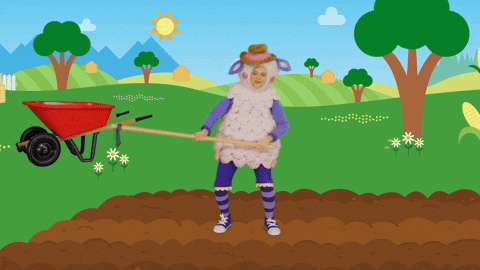Seed germination is an art in gardening, influenced by factors like growing mediums, watering techniques, sunlight requirements, and more.
In this article, we will answer the most frequently asked questions (FAQs) about seed germination, covering essential aspects such as seed quality, optimal seasons, temperatures, and key success factors.
Q1. What is seed germination?

Ans: Seed germination is the process by which a seed transforms into a new plant. It involves the activation of the embryo within the seed, leading to the emergence of a seedling.
Q2. How to check if seeds are of good quality?

Ans: To check seed quality, look for uniform size, a firm and undamaged seed coat, and a lack of mold or discoloration.
- Purchase seeds from reputable sources, and ensure that the packaging is sealed and undamaged. Properly stored seeds are more likely to maintain their viability.

Check the seed packets for the expiration date:
- Even after taking all the necessary measures, old or poor-quality seeds may not germinate. Hence, Check the seed packets for the expiration date and use them before the date has passed.
Q3. Which is the best season for successful seed germination?
Ans: The best seasons for the successful seed germination are the Spring and Autumn season.
- However, the germination of seeds gets stopped in extreme summers and winters.
Q4. What is the optimal temperature for seed germination?
Ans: The optimal temperature for seed germination varies among plant species. However, a range of 15°C – 25°C is suitable for many common garden plants.
Q5. What are the important factors for successful seed germination?
Ans: Critical factors include proper moisture, temperature, oxygen, and light conditions. Each plant species may have specific requirements.
Read article:
How to Germinate Seeds Successfully
Q6. What is the best growing medium for seed germination?
Ans: A well-balanced seed-starting mix with a combination of peat moss, vermiculite, and perlite is often recommended. It provides good aeration and moisture retention.
Q7. Can I use coco peat as a growing medium for seed germination?

Ans: Yes, coco peat is a suitable growing medium for seed germination.
- It retains moisture well, promotes aeration, and is a sustainable alternative to traditional peat moss.
Q8. How often should we water seeds during the germination process?

Ans: Keep the growing medium consistently moist but not waterlogged.
- Watering frequency depends on factors like temperature, humidity, and the specific needs of the plant.
- Moist the soil as soon as you notice that the top layer is drying out.
Q9. Does sunlight play any role during the seeds germination process?
Ans: Sunlight is not necessary for the germination of seeds.
- Always refer to specific plant requirements. Once seedlings emerge, they generally need adequate light for photosynthesis.
Q10. Can I use a seed tray for seed germination?

Ans: Yes, seed trays are commonly used for seed germination.
- They provide a controlled environment, make it easy to monitor seedlings, and allow for efficient use of space.
Q11. How much time does it take for successful seed germination?

Ans: The germination time varies widely among plant species.
- The duration of germination may vary from five to ten days, and it is important to be patient and wait for at least ten days for the seeds to germinate.
Q12. When should we transplant seedlings into the pot?

Ans: Transplant seedlings when they have developed a few true leaves and are large enough to handle.
Happy Gardening!


















































